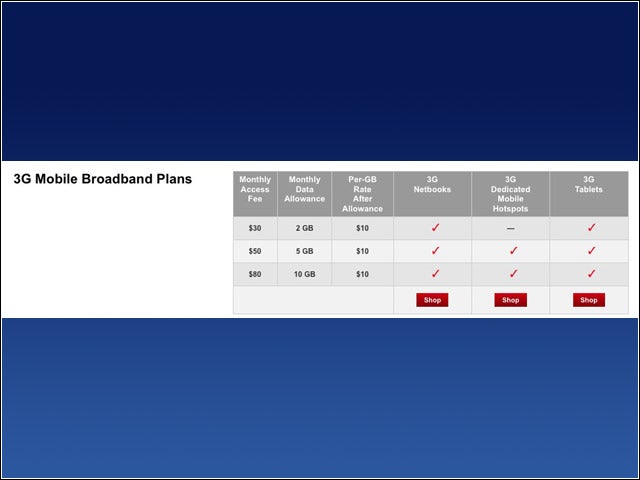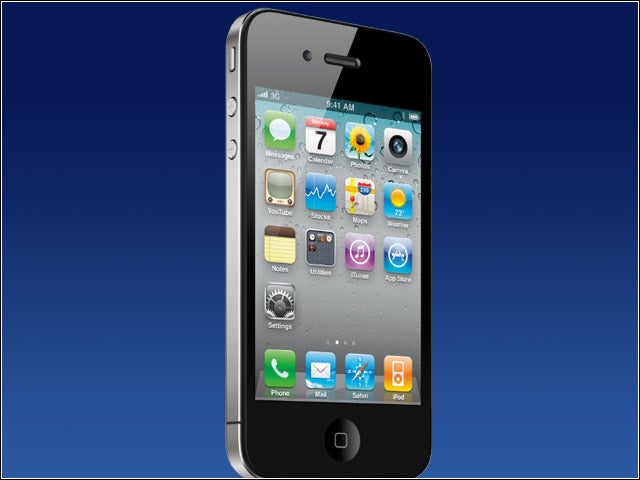eWEEK content and product recommendations are editorially independent. We may make money when you click on links to our partners. Learn More.
1The Death of Unlimited Data?
When Verizon announced that it would no longer support unlimited data, it started looking like the concept of unlimited data was endangered in the entire mobile industry. Currently, only Sprint has unlimited data, and in a recent interview, Sprint CEO Dan Hesse said that might eventually change. How unfortunate that would be. The Internet is vastly important to the daily lives of individuals. Having gotten customers addicted to having access to unlimited amount of data, the carriers are now charging customers a premium for high-volume data access.
2The Pricing Schemes Are All Wrong
When customers consider how mobile service is priced, they will quickly find that they’re not being treated as well as they should be. Customers are forced into different plans, based on the number of minutes they expect to talk each month. If they want data or text messaging, the fee each month goes up. Whatever happened to a single, all-you-can-eat offering for voice, data and text messaging? In the mobile business, that just isn’t happening. And that’s a problem.
3Wheres the Differentiation?
Switching from one carrier to another to get a better price is practically impossible in today’s marketplace. For an individual plan, for example, Verizon charges $40 per month for 450 minutes. AT&T’s 450-minute plan costs $40, as well. Verizon sells a 900-minute plan for $60, and AT&T does the same. In a free marketplace, such apparent industry price coordination doesn’t benefit consumers in any way.
4Who Wants a Two-Year Contract?
When customers head down to their wireless carrier’s office to buy a new phone, they’ll need to enter into a two-year agreement to take advantage of the best pricing. The only problem is the vast majority of consumers don’t want to get caught up in two-year contracts. Of course, they can opt for a contract-free arrangement, but the price of their desired phone skyrockets. That policy is not helping carriers make many friends.
5Consolidation Is Not a Good Thing
Debate rages over whether or not AT&T should be allowed to acquire T-Mobile USA and become the de facto wireless giant. Although AT&T says the deal won’t have a material impact on consumers, that’s highly unlikely. Over time, as consolidation continues, consumers will be increasingly pushed toward the two big firms: Verizon and AT&T. Sprint would become the relatively small independent survivor in the mobile space. Competitively that could put Sprint on the ropes and put it in serious danger of getting gobbled up by one of the two giants, further reducing competition in the telecommunications industry. Choice is everything in the industry, and by acquiring T-Mobile USA, AT&T is doing its part to eliminate it.
6Early-Termination Fees Are Ridiculous
Early-termination fees could very well be the bane of the wireless industry. Verizon Wireless customers who want to get out of a two-year contract early, for example, will need to pay up to $175 for a feature phone and as much as $350 to get out of a plan with a smartphone. It’s the same story elsewhere in the industry. Early-termination fees need to be eliminated sooner rather than later.
7Solid Phone Choices Are Limited
Over the last couple years, carriers have been doing a better job of delivering smartphone choices to customers. However, they still have a long way to go. Neither Sprint nor T-Mobile sells the iPhone, which puts them at a disadvantage. AT&T lacks a healthy selection of the best Android devices. Verizon waited a long time to get the iPhone. At each carrier, there are devices that people can buy and like, but none of them has all that vendors are currently offering.
8Lets Not Pretend Subsidies Are a Good Deal
As noted in a previous slide, customers can get relatively inexpensive smartphones as long as they enter into two-year agreements with carriers. And those carriers make it abundantly clear in their ads that those subsidies are great deals. But when one considers that they’re locked into a deal for two years, plan pricing is high and getting out of contracts early will set customers back, those subsidies don’t seem like such a great deal. In the mobile business, carriers get customers to pay less upfront so they can make more on those folks over the long term.
9Service Is Still Subpar
Let’s face it: Wireless service is still subpar. Although Verizon, AT&T, Sprint, and T-Mobile say that they’re spending boatloads of cash on improving coverage around the country, those in rural areas and even some suburban areas aren’t getting reliable service from their carriers. Even AT&T customers in urban areas complain that service is spotty at best. When one considers that 3G is still not ubiquitous, it becomes an even bigger issue. What have these carriers been spending their money on all these years?
10Lets Get Going on 4G
All four carriers are doubling down on ultra-high-speed 4G connections. However, it’s taking a long time for the technology to make its way to places outside major metropolitan areas. T-Mobile has arguably done the best job at it so far, since its service is available in over 100 metropolitan areas. But what about everyone else? If 4G really is the future, maybe these carriers should get moving on delivering it to as many customers as possible.









